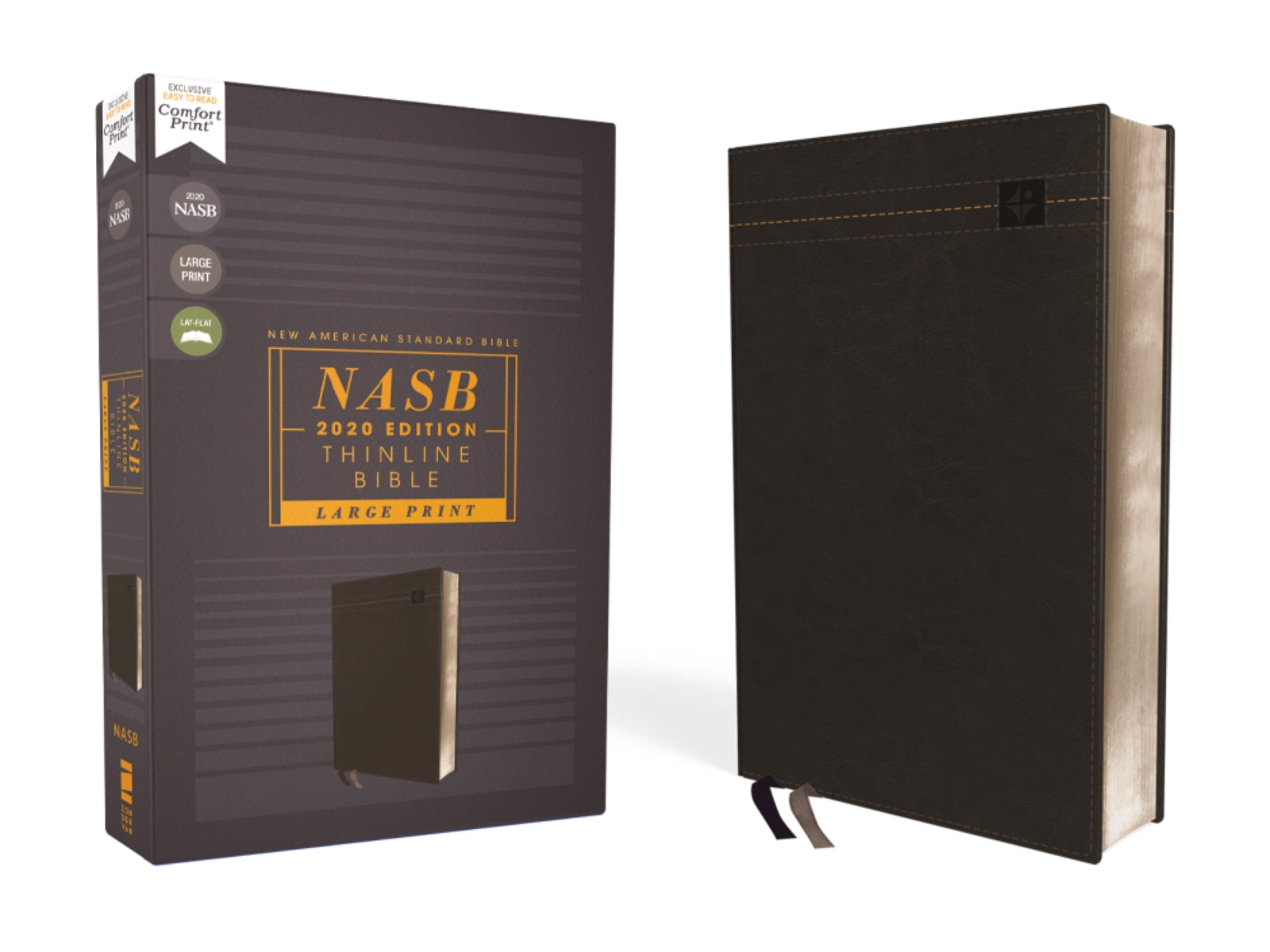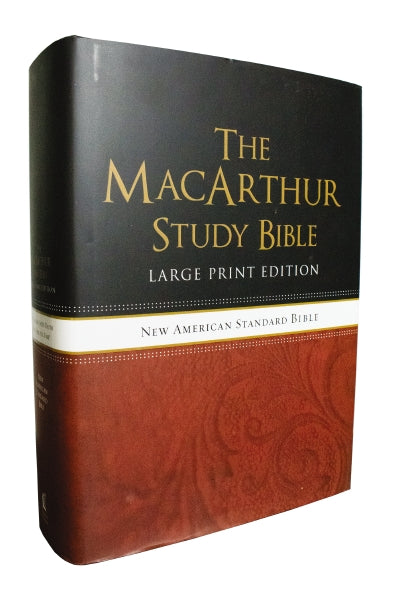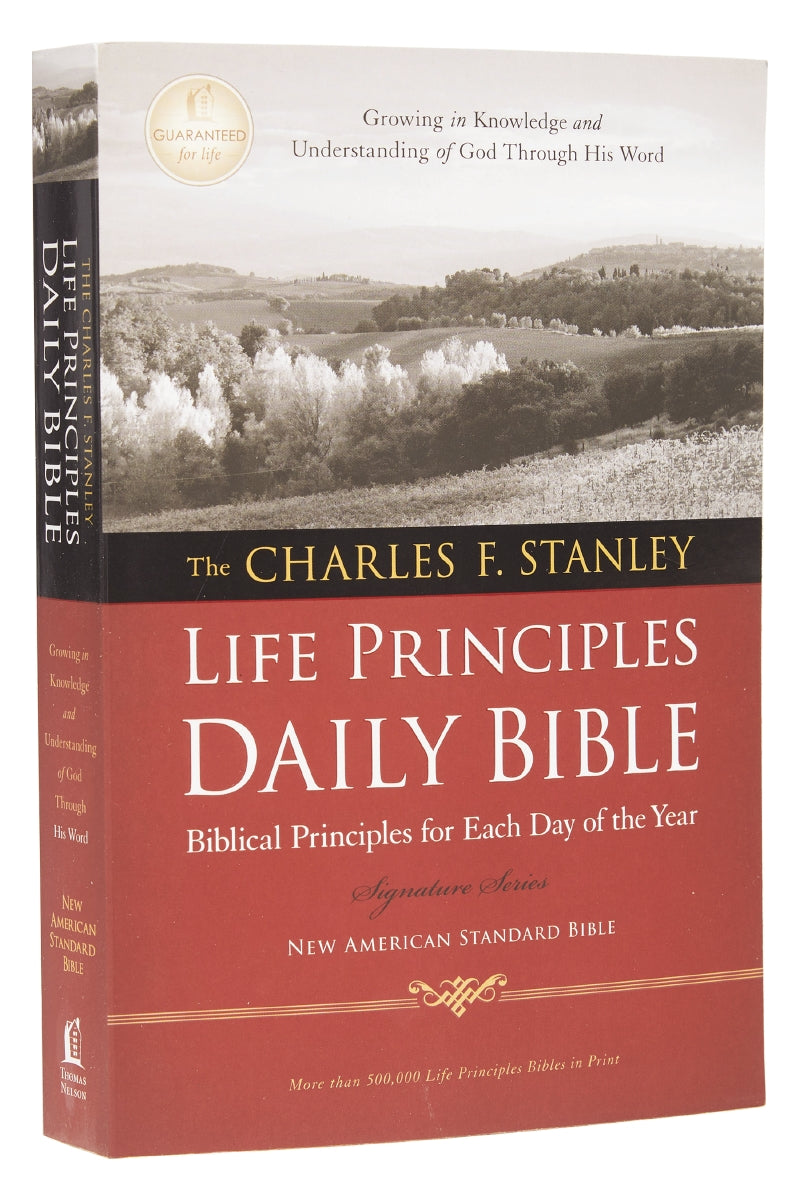Hebrews 5:11-9:28
New American Standard Bible
11 Concerning [a]him we have much to say, and it is difficult to explain, since you have become [b]poor listeners. 12 For though [c]by this time you ought to be teachers, you have need again for someone to teach you (A)the [d](B)elementary principles of the (C)actual words of God, and you have come to need (D)milk and not solid food. 13 For everyone who partakes only of milk is unacquainted with the word of righteousness, for he is an (E)infant. 14 But solid food is for (F)the mature, who because of practice have their senses (G)trained to (H)distinguish between good and evil.
The Danger of Falling Away
6 Therefore (I)leaving (J)the [e]elementary teaching about the [f]Christ, let us press on to [g](K)maturity, not laying again a foundation of repentance from (L)dead works and of faith toward God, 2 of (M)instruction about [h]washings and (N)laying on of hands, and about the (O)resurrection of the dead and (P)eternal judgment. 3 And this we will do, (Q)if God permits. 4 For it is (R)impossible, in the case of those who have once been (S)enlightened and have tasted of (T)the heavenly gift and have been made (U)partakers of the Holy Spirit, 5 and (V)have tasted the good (W)word of God and the powers of (X)the age to come, 6 and then have [i]fallen away, to (Y)restore them again to repentance, [j](Z)since they again crucify to themselves the Son of God and put Him to open shame. 7 For ground that drinks the rain which often [k]falls on it and produces vegetation useful to those (AA)for whose sake it is also tilled, receives a blessing from God; 8 but if it yields thorns and thistles, it is worthless and [l](AB)close to being cursed, and [m]it ends up being burned.
Better Things for You
9 But, (AC)beloved, we are convinced of better things regarding you, and things that [n]accompany salvation, even though we are speaking in this way. 10 For (AD)God is not unjust so as to forget (AE)your work and the love which you have shown toward His name, by having (AF)served and by still serving the [o]saints. 11 And we desire that each one of you demonstrate the same diligence [p]so as to realize the (AG)full assurance of (AH)hope until the end, 12 so that you will not be sluggish, but (AI)imitators of those who through (AJ)faith and endurance (AK)inherit the promises.
13 For (AL)when God made the promise to Abraham, since He could swear an oath by no one greater, He (AM)swore by Himself, 14 saying, “(AN)indeed I will greatly bless you and I will greatly multiply you.” 15 And so, (AO)having patiently waited, he obtained the promise. 16 (AP)For people swear an oath by [q]one greater than themselves, and with them (AQ)an oath serving as confirmation is an end of every dispute. 17 [r]In the same way God, desiring even more to demonstrate to (AR)the heirs of the promise [s](AS)the fact that His purpose is unchangeable, [t]confirmed it with an oath, 18 so that by two unchangeable things in which (AT)it is impossible for God to lie, we who have taken refuge would have strong encouragement to hold firmly to (AU)the hope set before us. 19 [u]This (AV)hope we have as an anchor of the soul, a hope both sure and reliable and one which (AW)enters [v]within the veil, 20 (AX)where Jesus has entered as a forerunner for us, having become a (AY)high priest forever according to the order of Melchizedek.
Melchizedek’s Priesthood like Christ’s
7 For this (AZ)Melchizedek, king of Salem, priest of the (BA)Most High God, who met Abraham as he was returning from the slaughter of the kings and blessed him, 2 to whom also Abraham apportioned a tenth of all the spoils, was first of all, by the translation of his name, king of righteousness, and then also king of Salem, which is king of peace. 3 Without father, without mother, (BB)without genealogy, having neither beginning of days nor end of life, but made like (BC)the Son of God, he remains a priest perpetually.
4 Now observe how great this man was to whom Abraham, the (BD)patriarch, (BE)gave a tenth of the choicest spoils. 5 And those indeed of (BF)the sons of Levi who receive the priest’s office have a commandment [w]in the Law to collect [x]a tenth from the people, that is, from their countrymen, although they [y]are descended from Abraham. 6 But the one (BG)whose genealogy is not traced from them (BH)collected [z]a tenth from Abraham and [aa](BI)blessed the one who (BJ)had the promises. 7 But without any dispute the lesser person is blessed by the greater. 8 In this case mortal men receive tithes, but in that case one receives them, (BK)of whom it is witnessed that he lives on. 9 And, so to speak, through Abraham even Levi, who received tithes, has paid tithes, 10 for he was still in the loins of his [ab]forefather when Melchizedek met him.
11 (BL)So if perfection was through the Levitical priesthood (for on the basis of it (BM)the people received the Law), what further need was there for another priest to arise (BN)according to the order of Melchizedek, and not be designated according to the order of Aaron? 12 For when the priesthood is changed, of necessity there takes place a change of law also. 13 For (BO)the one about whom (BP)these things are said belongs to another tribe, from which no one has officiated at the altar. 14 For it is evident that our Lord [ac]was (BQ)descended from Judah, a tribe with reference to which Moses said nothing concerning priests. 15 And this is clearer still, if another priest arises according to the likeness of Melchizedek, 16 who has become a priest not on the basis of a law of [ad](BR)physical requirement, but according to the power of (BS)an indestructible life. 17 For it is attested of Him,
“(BT)You are a priest forever
According to the order of Melchizedek.”
18 For, on the one hand, there is the nullification of a former commandment (BU)because of its weakness and uselessness 19 (for (BV)the Law made nothing perfect); on the other hand, there is the introduction of a better (BW)hope, through which we (BX)come near to God. 20 And to the extent that it was not without an oath 21 (for they indeed became priests without an oath, but He with an oath through the One who said to Him,
22 by the same extent Jesus also has become the [ae](CB)guarantee of (CC)a better covenant.
23 [af]The former priests, on the one hand, existed in greater numbers because they were prevented by death from continuing; 24 [ag]Jesus, on the other hand, because He continues (CD)forever, holds His priesthood permanently. 25 Therefore He is also able to (CE)save [ah]forever those who (CF)come to God through Him, since He always lives to (CG)make intercession for them.
26 For it was fitting for us to have such a (CH)high priest, (CI)holy, (CJ)innocent, undefiled, separated from sinners, and (CK)exalted above the heavens; 27 who has no daily need, like those high priests, to (CL)offer up sacrifices, (CM)first for His own sins and then for the sins of the people, because He did this (CN)once for all time when He (CO)offered up Himself. 28 For the Law appoints men as high priests (CP)who are weak, but the word of the oath, which came after the Law, appoints (CQ)a Son, who has been (CR)made perfect forever.
A Better Ministry
8 Now the main point in what has been said is this: we have such a (CS)high priest, who has taken His seat at (CT)the right hand of the throne of the (CU)Majesty in the heavens, 2 a (CV)minister [ai]in the sanctuary and [aj]in the (CW)true [ak]tabernacle, which the Lord (CX)set up, not man. 3 For every (CY)high priest is appointed (CZ)to offer both gifts and sacrifices; so it is necessary that this high priest also have something to offer. 4 Now if He were on earth, He would not be a priest at all, since there are [al]those who (DA)offer the gifts according to the Law; 5 who serve (DB)a copy and (DC)shadow of the heavenly things, just as Moses [am]was (DD)warned by God when he was about to erect the [an]tabernacle; for, “(DE)See,” He says, “that you make all things by the pattern which was shown to you on the mountain.” 6 But now He has obtained a more excellent ministry, to the extent that He is also the (DF)mediator of (DG)a better covenant, which has been enacted on better promises.
A New Covenant
7 For (DH)if that first covenant had been free of fault, no [ao]circumstances would have been sought for a second. 8 For in finding fault with [ap]the people, He says,
“(DI)Behold, days are coming, says the Lord,
[aq]When I will bring about (DJ)a new covenant
With the house of Israel and the house of Judah,
9 (DK)Not like the covenant which I made with their fathers
On the day I took them by the hand
To bring them out of the land of Egypt;
For they did not continue in My covenant,
And I did not care about them, says the Lord.
10 (DL)For this is the covenant which I will make with the house of Israel
After those days, declares the Lord:
[ar]I will put My laws into their minds,
And write them (DM)on their hearts.
And I will be their God,
And they shall be My people.
11 (DN)And they will not teach, each one his fellow citizen,
And each one his brother, saying, ‘Know the Lord,’
For (DO)they will all know Me,
From [as]the least to the greatest of them.
12 (DP)For I will be merciful toward their wrongdoings,
(DQ)And their sins I will no longer remember.”
13 [at]When He said, “(DR)A new covenant,” He has made the first obsolete. (DS)But whatever is becoming obsolete and growing old is [au]about to disappear.
The Old and the New
9 Now even the first covenant had (DT)regulations for divine worship and (DU)the earthly sanctuary. 2 For (DV)a [av]tabernacle was equipped, the [aw]outer sanctuary, in which were (DW)the lampstand, (DX)the table, and (DY)the [ax]sacred bread; this is called the Holy Place. 3 Behind (DZ)the second veil there was a [ay]tabernacle which is called the (EA)Most Holy Place, 4 having a golden [az](EB)altar of incense and (EC)the ark of the covenant covered on all sides with gold, in which was (ED)a golden jar holding the manna, (EE)Aaron’s staff which budded, and (EF)the tablets of the covenant; 5 and above it were the (EG)cherubim of glory (EH)overshadowing the [ba]atoning cover; but about these things we cannot now speak in detail.
6 Now when these things have been so prepared, the priests (EI)are continually entering the [bb]outer [bc]tabernacle, performing the divine worship, 7 but into (EJ)the second, only (EK)the high priest enters (EL)once a year, (EM)not without taking blood which he (EN)offers for himself and for the [bd](EO)sins of the people committed in ignorance. 8 (EP)The Holy Spirit is signifying this, (EQ)that the way into the holy place has not yet been disclosed while the [be]outer tabernacle is still standing, 9 which is a symbol for the present time. Accordingly (ER)both gifts and sacrifices are offered which (ES)cannot make the worshiper perfect in conscience, 10 since they relate only to (ET)food, (EU)drink, and various (EV)washings, (EW)regulations for the [bf]body imposed until (EX)a time of reformation.
11 But when Christ appeared as a (EY)high priest of the (EZ)good things [bg]having come, He entered through (FA)the greater and more perfect [bh]tabernacle, (FB)not made by hands, that is, (FC)not of this creation; 12 and not through (FD)the blood of goats and calves, but (FE)through His own blood, He (FF)entered the holy place (FG)once for all time, [bi]having obtained (FH)eternal redemption. 13 For if (FI)the blood of goats and bulls, and (FJ)the [bj]ashes of a heifer sprinkling those who have been defiled, sanctify for the [bk]cleansing of the flesh, 14 how much more will (FK)the blood of Christ, who through [bl](FL)the eternal Spirit (FM)offered Himself without blemish to God, (FN)cleanse your conscience from (FO)dead works to serve (FP)the living God?
15 For this reason (FQ)He is the (FR)mediator of a (FS)new covenant, so that, since a death has taken place for the redemption of the violations that were committed under the first covenant, those who have been (FT)called may (FU)receive the promise of (FV)the eternal inheritance. 16 For where there is a [bm]covenant, there must of necessity [bn]be the death of the one who made it. 17 For a [bo]covenant is valid only when people are dead, [bp]for it is never in force while the one who made it lives. 18 Therefore even the first covenant was not inaugurated without blood. 19 For when every commandment had been (FW)spoken by Moses to all the people according to the Law, (FX)he took the (FY)blood of the calves and the goats, with (FZ)water and scarlet wool and hyssop, and sprinkled both (GA)the book itself and all the people, 20 saying, “(GB)This is the blood of the covenant which God commanded you.” 21 And in the same way he (GC)sprinkled both the [bq]tabernacle and all the vessels of the ministry with the blood. 22 And (GD)almost all things are cleansed with blood, according to the Law, and (GE)without the shedding of blood there is no forgiveness.
23 Therefore it was necessary for the (GF)copies of the things in the heavens to be cleansed with these things, but (GG)the heavenly things themselves with better sacrifices than these. 24 For Christ (GH)did not enter a holy place made by hands, a mere copy of (GI)the true one, but into (GJ)heaven itself, now (GK)to appear in the presence of God for us; 25 nor was it that He would offer Himself often, as (GL)the high priest enters (GM)the Holy Place (GN)year by year with blood that is not his own. 26 Otherwise, He would have needed to suffer often since (GO)the foundation of the world; but now (GP)once at (GQ)the consummation of the ages He has been (GR)revealed to put away sin [br](GS)by the sacrifice of Himself. 27 And just as (GT)it is destined for people to die once, and after this (GU)comes judgment, 28 so Christ also, having been (GV)offered once to (GW)bear the sins of many, will appear (GX)a second time for (GY)salvation (GZ)without reference to sin, to those who (HA)eagerly await Him.
Footnotes
- Hebrews 5:11 Lit whom; or which
- Hebrews 5:11 Lit sluggish in hearing
- Hebrews 5:12 Lit because of the time
- Hebrews 5:12 Lit elements of the beginning
- Hebrews 6:1 Lit word of the beginning
- Hebrews 6:1 I.e., Messiah
- Hebrews 6:1 Or perfection
- Hebrews 6:2 Or baptisms
- Hebrews 6:6 Or committed apostasy; i.e., renounced the faith
- Hebrews 6:6 Or while
- Hebrews 6:7 Lit comes
- Hebrews 6:8 Lit near to a curse
- Hebrews 6:8 Lit whose end is for burning
- Hebrews 6:9 Or belong to
- Hebrews 6:10 Lit holy ones; i.e., God’s people
- Hebrews 6:11 Lit to the full
- Hebrews 6:16 Or Him who is greater
- Hebrews 6:17 Lit In which
- Hebrews 6:17 Lit the unchangeableness of His
- Hebrews 6:17 Or mediated
- Hebrews 6:19 Lit Which hope we have
- Hebrews 6:19 Or inside
- Hebrews 7:5 Lit according to
- Hebrews 7:5 Or tithes
- Hebrews 7:5 Lit have come out of the loins of
- Hebrews 7:6 Or tithes
- Hebrews 7:6 Lit has blessed
- Hebrews 7:10 Lit father
- Hebrews 7:14 Lit has arisen from
- Hebrews 7:16 Lit fleshly commandment; i.e., to be a descendant of Levi
- Hebrews 7:22 Or guarantor
- Hebrews 7:23 Lit The greater number have become priests...
- Hebrews 7:24 Lit He
- Hebrews 7:25 Or completely
- Hebrews 8:2 Or of
- Hebrews 8:2 Or of
- Hebrews 8:2 Or sacred tent
- Hebrews 8:4 I.e., temple priests
- Hebrews 8:5 Lit has been
- Hebrews 8:5 Or sacred tent
- Hebrews 8:7 Lit place
- Hebrews 8:8 Lit them
- Hebrews 8:8 Lit And
- Hebrews 8:10 Lit Putting my laws into...
- Hebrews 8:11 Lit small to great of them
- Hebrews 8:13 Or In His saying
- Hebrews 8:13 Or near destruction
- Hebrews 9:2 Or sacred tent
- Hebrews 9:2 Lit first
- Hebrews 9:2 Lit loaves of presentation
- Hebrews 9:3 Or sacred tent
- Hebrews 9:4 Or censer
- Hebrews 9:5 Also called mercy seat; i.e., where blood was sprinkled on the Day of Atonement
- Hebrews 9:6 Lit first
- Hebrews 9:6 Or sacred tent
- Hebrews 9:7 Lit ignorance of the people
- Hebrews 9:8 Lit first
- Hebrews 9:10 Lit flesh
- Hebrews 9:11 One early ms to come
- Hebrews 9:11 Or sacred tent
- Hebrews 9:12 Or obtaining
- Hebrews 9:13 I.e., ashes mixed in water
- Hebrews 9:13 Lit purity
- Hebrews 9:14 Or His eternal spirit
- Hebrews 9:16 Or testament
- Hebrews 9:16 Lit be brought
- Hebrews 9:17 Or testament
- Hebrews 9:17 One early ms for is it then...lives?
- Hebrews 9:21 Or sacred tent
- Hebrews 9:26 Or by His sacrifice
New American Standard Bible®, Copyright © 1960, 1971, 1977, 1995, 2020 by The Lockman Foundation. All rights reserved.
Bible Gateway Recommends






